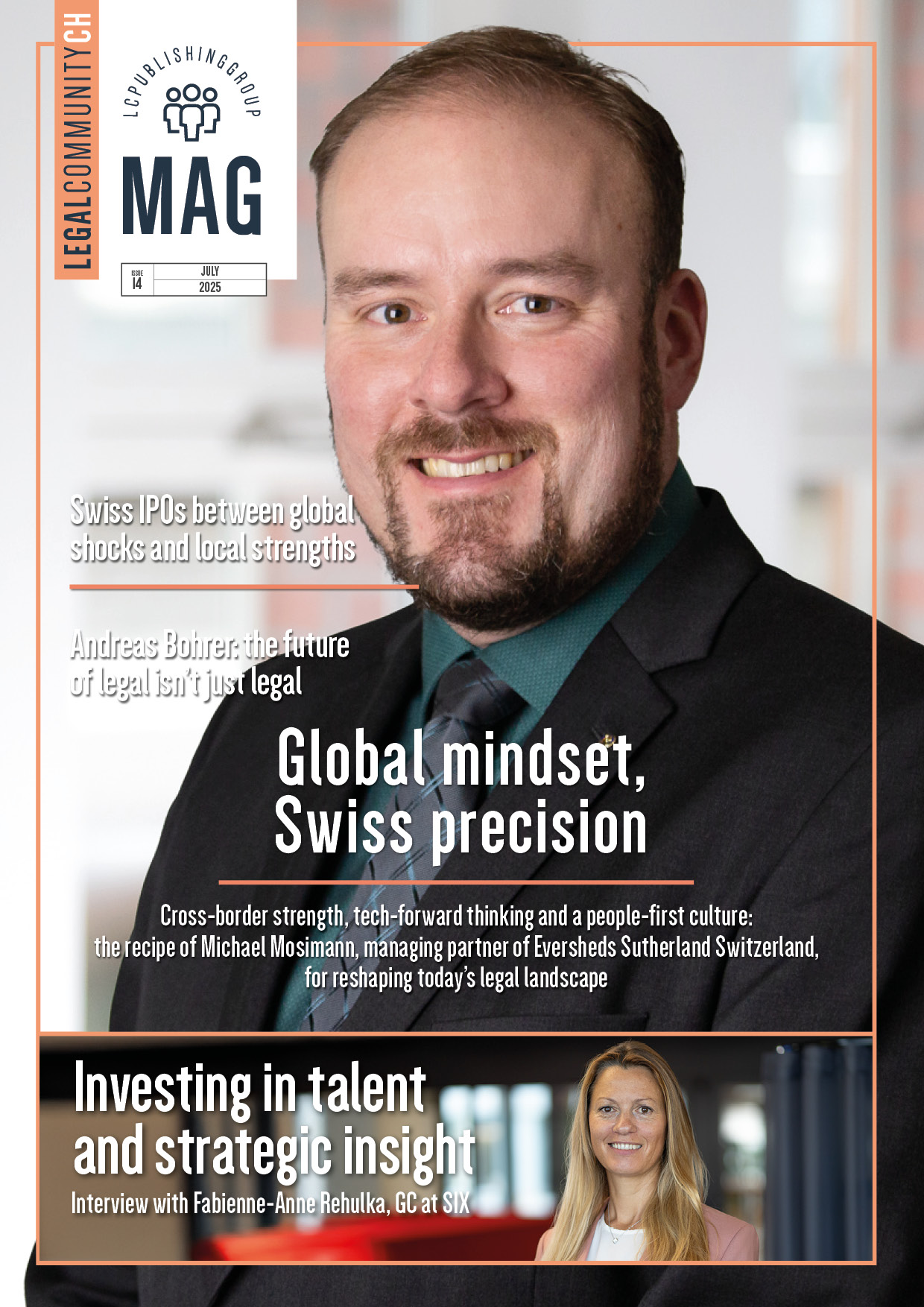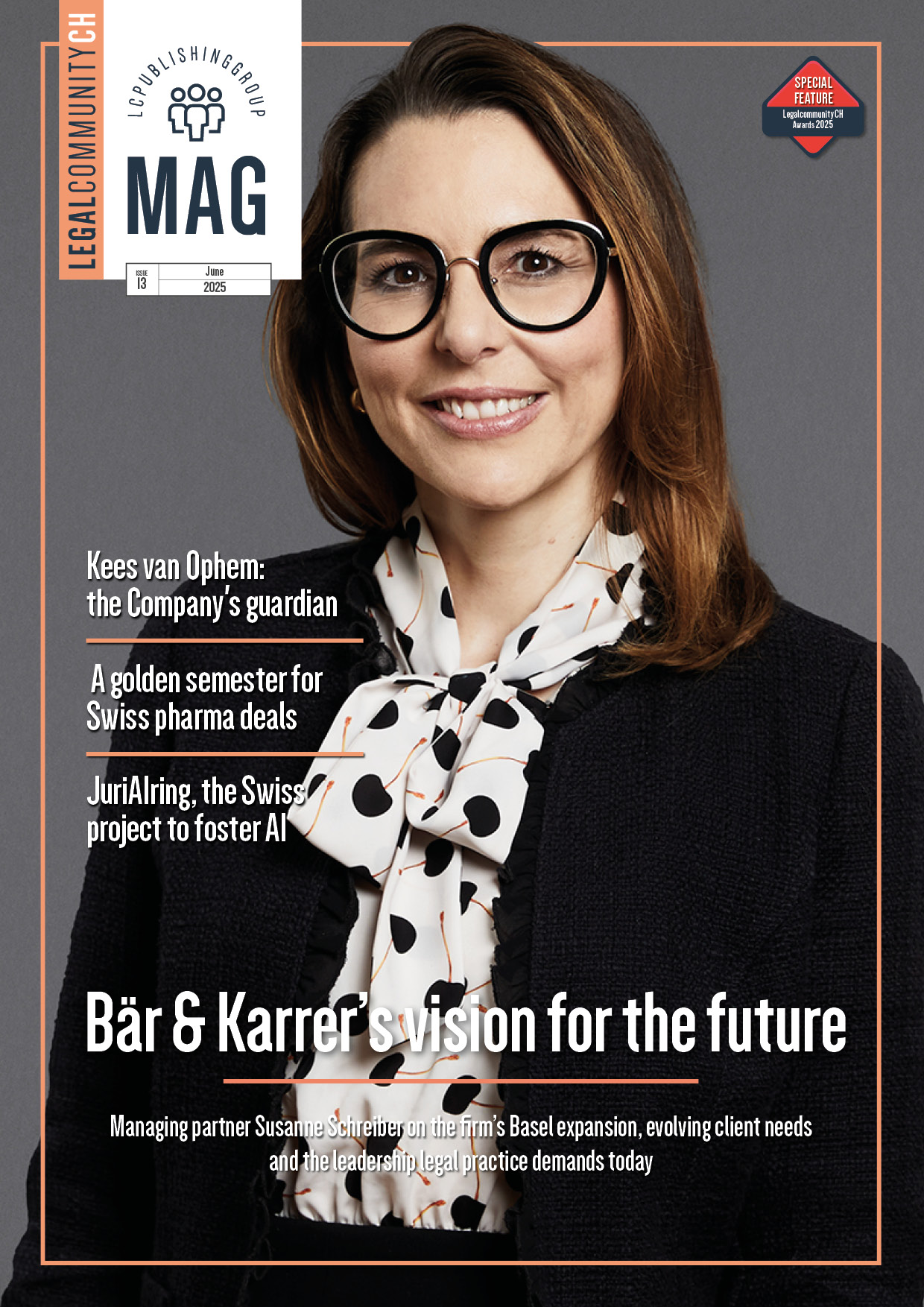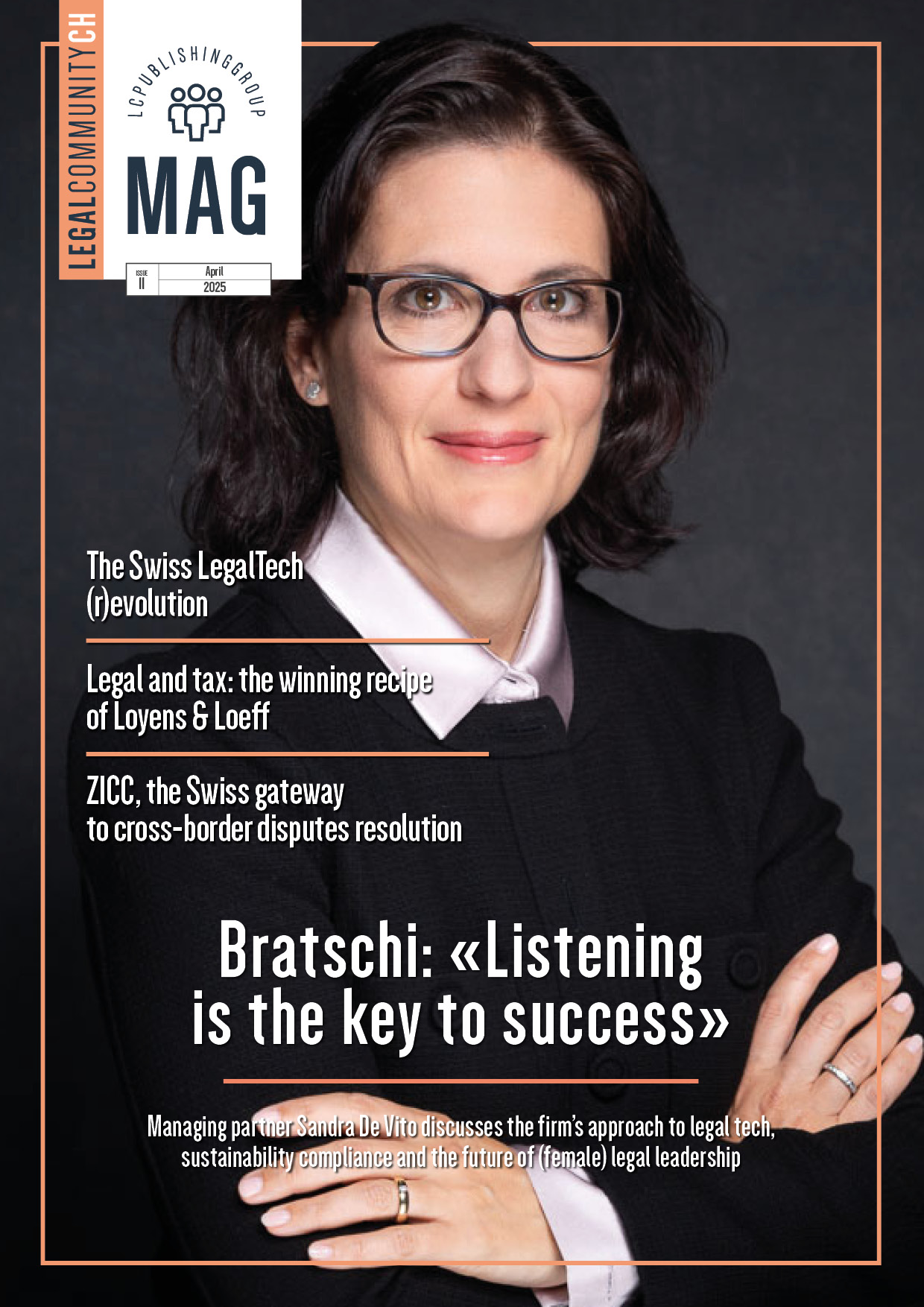AI will (partially) replace lawyers
(Translation: Alessio Foderi, article «L’AI sostituirà i legali…in parte» published on MAG 132)
By Ilaria Iaquinta
Innovation is the keyword. Any attempt to demonstrate the contrary will be unsuccessful. Innovating is officially the mantra of the entire universe of legal services. In order to understand this trend, a glimpse to what has happened in the last decade is enough. Law firms have in effect begun to question their operational models and have opened up to the use of new technologies and artificial intelligence (AI) to give customers better and increasingly updated services. New players, which are innovative by vocation, have appeared in this market, constantly growing: for example, it’s the case of alternative legal service providers. At the same time, in-house, corporate legal departments, like other functions, are starting to implement technologies that allow them to work more efficiently and to reduce, or at least contain, costs. We have met Dahir Ali, Cnh Industrial vice president and general counsel Asia Middle East and Africa, in order to understand what innovation means for corporate lawyers and how technology is becoming more and more important in providing legal services. That’s what he told us.
What does innovation mean for a general counsel?
Innovation is part of human nature. In the specific context of legal departments and the work of a general counsel, innovating means understanding, through a precise investigation of the needs of internal clients, what are the areas in which you can give more added value to the company and develop methods and ways of working that, in a very practical way, help to achieve business goals in an agile way. Innovation is more a method than a specific factor.
Which is technology role in this context?
An essential role, it can be both a facilitator and an accelerator that helps to understand business risks and opportunities. It facilitates the process to scout most suitable solutions and methods.
Technology, and AI in particular, is gaining more and more space in legal services. Someone is afraid that increasing AI use in this field could threaten legal profession. What’s your opinion?
I don’t think it’s going to jeopardize legal profession, but it’s going to partially replace it. One of the biggest challenges for lawyers is to manage complexities in an agile way. By adapting quickly, artificial intelligence will be an enabler because it will facilitate the understanding of the facts and accelerate predictability and the possible outcomes of an analysis.
Going into the detail, what do you mean when you say that AI will partially replace lawyers?
It will shift the professionalism of lawyers to different areas. Lawyers and corporate lawyers will work mainly on deepening and defining strategies, benefiting from the speed and accuracy of the preliminary analysis conducted by artificial intelligence. For instance, the professional will be able to examine the first analysis done by AI, insert checkpoints to verify that everything has worked well and focus their activity on the added value of understanding the determining facts and the solutions to apply.
Will new roles be created within the corporate legal departments?
Yes. To mediate between the technological and the exclusively legal, to act as a bridge and help professionals understand how to make the most of these tools. Thanks to these instruments it will be possible for corporate legal and compliance functions to get an advantage and, more generally, they will come in handy in the field of investigative roles in support of the prosecutor of the republic. Furthermore, they can be used by judges and by legislator.
First point, compliance…
Recently, a wide-ranging corruption investigation by a large multinational company has called for the review of some 30 million different documents. The first step was to identify the legal privilege files, and then to further review. An AI tool examined half a million charts per day, ranking them in a short amount of time: this operation would have impossible for any human team to replicate in such short time. The company’s compliance and internal audit functions can move from traditional mass analysis to evaluation of exam results conducted by AI systems.
You also mention investigations, prosecutors and lawmakers…
They all could benefit as well from these tools to speed up investigations of dossiers, of course these are preparatory checks, human teams remain an essential control point to ensure that everything works and there are no violations. As for legislators, I think AI can help them understand whether an ordinary law fully respects constitutional rights, for example, or even simpler things like overlapping rules, loopholes, lack of clarity of certain measures.
Going back to the company: what will cause the use of artificial intelligence in the next generation of corporate lawyers? Will they have to acquire new skills compared to the ones traditionally established for lawyers?
Absolutely yes. Business is evolving thanks to artificial intelligence, regulatory innovations emerge, let’s think for example of self-driving vehicles. Younger people will have to specialize in different fields, become competent in new subjects. The same can be said for senior lawyers, of course, since both companies and countries are already investing heavily in AI promotion programs, where they compete for leadership positions.
There will be also changes in external advice. Do you think more and more work will be done in-house or alternative legal service providers will be the main actors?
Both. It will change the service model inside companies, where there will be greater specialization, and, at the same time, the relationship with external law firms. The latter will reasonably focus, in addition to the areas of primary interest to the company, on the value of the service offered. The pricing model of the firm will change, being based on added value. But I don’t think AI will replace the use of external counsels. However, it will change the model of interaction and collaboration.
Would this fee review allow to save money?
Not necessarily, it may be that the acceleration of the time with which the service is delivered will be considered as the high value-added factors. Game is often played on time. This is the case with negotiations, litigation, strategic moves or pre-emptive transactions to avoid going to quarrel in court.
What about alternative legal service providers? Law firms don’t see them as competitors… In contrast, more general counsels are beginning to entrust them with matters that were previously intended for law firms. For example, due diligences…
They’re competitors. An alternative legal service provider, in the end, is an expert in legal matters, otherwise it would not be able to interact and give added value to an internal direction. Beyond definitions, it’s the shape that has changed. Above the difference between traditional law firms or alternative legal services providers, a lawyer will look who gives the best result in the shortest amount of time. Those who use AI will have an extra card. The difference will be the technology used and how the professional will be able to use his/her expertise for the benefit of the client.
In which fields does artificial intelligence make human competence more important than ever?
Two words: ethics and legality. AI is a tool at the service of the human being, whatever facilitation brings, it will always require human control, in order to guarantee ethics and legality. Human competence will always be fundamental in ensuring that these tools are only committed to achieving results that facilitate business without undermining our core values.
















